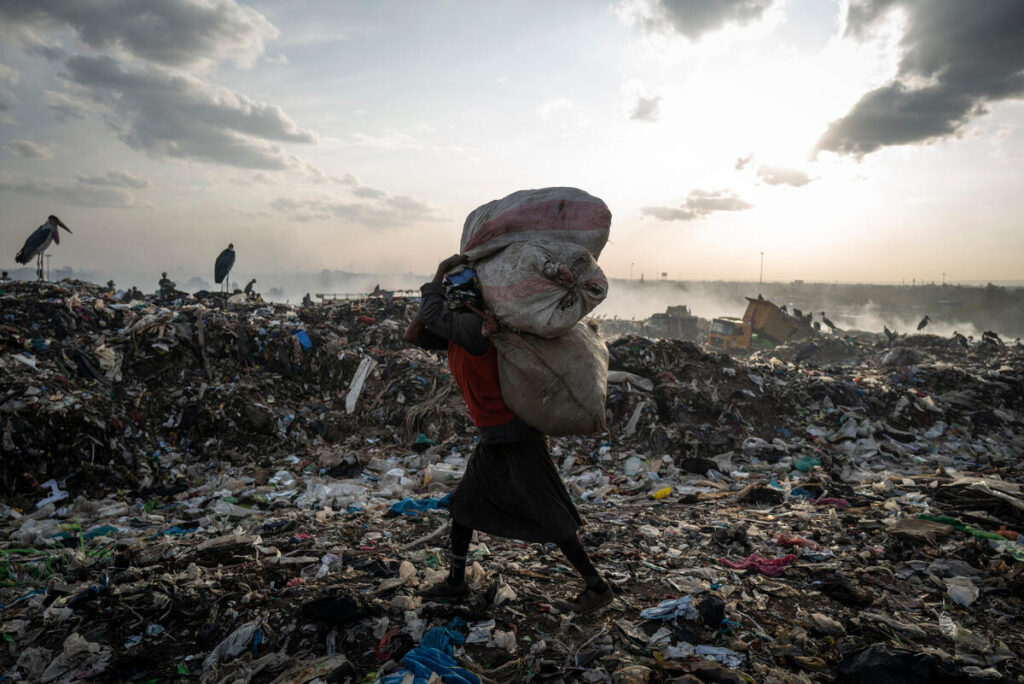Welcome to the fast-paced world of fashion, where trends come and go quicker than you can say “sustainable.” Fossil fuels have long been woven into the fabric of the industry, fueling everything from production to transportation. But as we strive towards a greener future, a new report shines a light on two major obstacles standing in our way: greenwashing and ultra fast fashion. Join us as we unravel the threads of these issues and explore how they’re hindering progress in eliminating fossil fuels from textiles.
Definition of greenwashing and its impact on sustainability efforts
Greenwashing is a deceptive marketing practice where companies mislead consumers into thinking their products are more environmentally friendly than they actually are. It involves using misleading labels, claims, or imagery to create a false perception of sustainability. This tactic undermines genuine efforts towards sustainability by creating confusion and skepticism among consumers.
By engaging in greenwashing, companies not only deceive their customers but also detract from the progress made in eliminating fossil fuels from textiles. Consumers may unknowingly support brands that contribute to environmental harm rather than those striving for positive change. This can lead to a lack of trust in the industry as a whole and hinder collective efforts towards a more sustainable future.
Understanding the implications of greenwashing is crucial for consumers to make informed choices and hold companies accountable for their actions. By being vigilant and researching brands’ sustainability claims, individuals can help combat this harmful practice and drive real progress towards reducing the fashion industry’s reliance on fossil fuels.
The rise of ultra fast fashion and its contribution to the fossil fuel problem
In the fast-paced world of fashion, ultra fast fashion has become a trend that is hard to ignore. With companies constantly churning out new styles at lightning speed, the pressure on resources like fossil fuels is immense. The demand for quick and cheap clothing leads to increased production, which in turn means more reliance on fossil fuel-based materials.
From the extraction of oil for synthetic fabrics to the transportation of garments across continents, every step in the ultra fast fashion cycle contributes to carbon emissions. This rapid turnover of trends not only accelerates environmental harm but also perpetuates a culture of disposable clothing.
As consumers, we must be mindful of our choices and consider the true cost behind those inexpensive trendy pieces. By opting for quality over quantity and supporting sustainable brands, we can help reduce the impact of ultra fast fashion on our planet’s finite resources.
Case studies of companies engaging in greenwashing and ultra fast fashion
Let’s dive into some eye-opening case studies that shed light on how certain companies are engaging in greenwashing and contributing to the ultra fast fashion trend. In recent reports, several well-known brands have been called out for misleading consumers with false claims of sustainability while continuing to rely heavily on fossil fuels in their production processes.
One such example is a popular fast fashion retailer that markets its products as eco-friendly and sustainable, yet investigations reveal their supply chain still heavily depends on nonrenewable resources. This discrepancy between branding and reality highlights the deceptive nature of greenwashing practices within the industry.
Additionally, there have been instances where companies promote ultra fast fashion by churning out new collections at an alarming rate, resulting in increased carbon emissions and textile waste. These unsustainable practices prioritize profit margins over environmental responsibility, further exacerbating the fossil fuel problem in textiles.
The role of consumer awareness and responsibility in combating these issues
Consumer awareness and responsibility play a crucial role in combating the issues of greenwashing and ultra fast fashion within the textile industry. As consumers, we hold significant power through our purchasing decisions. By educating ourselves about sustainable practices and being mindful of the brands we support, we can drive positive change.
When consumers demand transparency and ethical production methods, companies are pressured to align their practices with sustainability goals. It’s essential for us to question marketing claims, look for certifications, and choose quality over quantity when making purchases.
By supporting brands that prioritize eco-friendly initiatives and fair labor practices, we send a clear message that sustainability matters to us. Our choices have the potential to influence industry standards towards more responsible manufacturing processes.
Consumer awareness empowers us to make informed choices that contribute to a more environmentally conscious fashion landscape. Let’s continue to raise our voices through our shopping habits and advocate for a greener future in the world of textiles.
Solutions for companies to become more sustainable and reduce their use of fossil fuels
As the fashion industry grapples with the challenges of fossil fuel consumption, companies must prioritize sustainability to drive real change. One key solution is investing in eco-friendly materials like organic cotton, hemp, or recycled fabrics to reduce dependency on traditional petroleum-based textiles. Implementing energy-efficient practices in manufacturing processes can also significantly lower carbon emissions.
Moreover, embracing circular fashion models that promote reuse and recycling can help minimize waste and lessen the demand for new raw materials derived from fossil fuels. Collaborating with ethical suppliers who adhere to sustainable practices throughout the supply chain is another crucial step towards creating a more environmentally conscious business model.
Furthermore, transparency and accountability are essential—companies should communicate openly about their sustainability efforts and progress towards reducing their carbon footprint. By setting clear goals and regularly monitoring their impact on the environment, fashion brands can lead by example in transitioning towards a greener future.
Conclusion and call to action for a more environmentally conscious
As we navigate the complex landscape of the fashion industry, it is evident that greenwashing and ultra fast fashion are significant hurdles in our journey towards sustainability. The allure of quick profits and misleading marketing tactics have clouded the path to a greener future for textiles.
However, all hope is not lost. Consumers hold immense power in their purchasing decisions. By becoming more informed and demanding transparency from brands, we can drive meaningful change within the industry.
Companies must also take responsibility for their actions by reevaluating their practices, investing in sustainable alternatives, and reducing their reliance on fossil fuels. It is time for a collective effort to prioritize environmental consciousness over profit margins.
Together, we can push for genuine progress in eliminating fossil fuels from textiles and fostering a more sustainable future for generations to come. Let’s act now for a cleaner, greener tomorrow.
For more, visit QAWire



